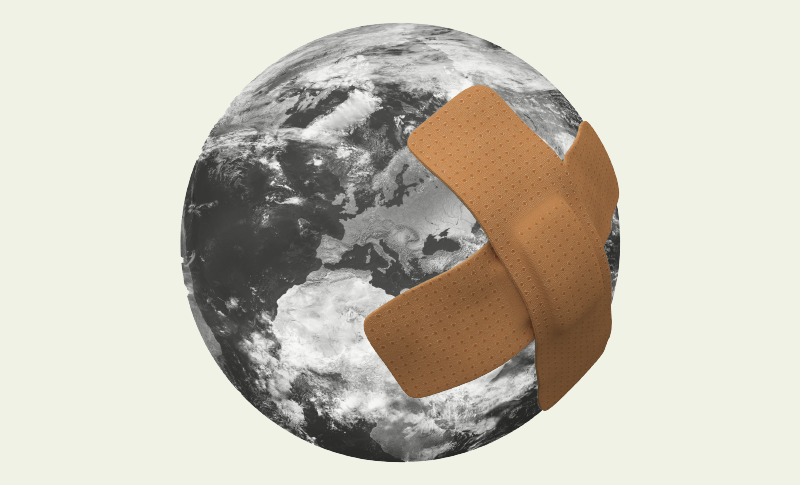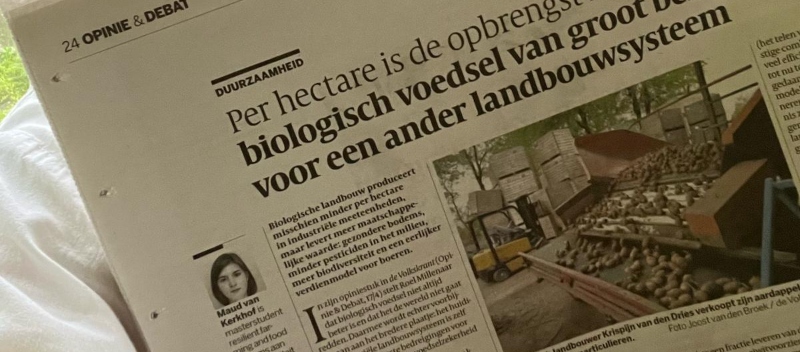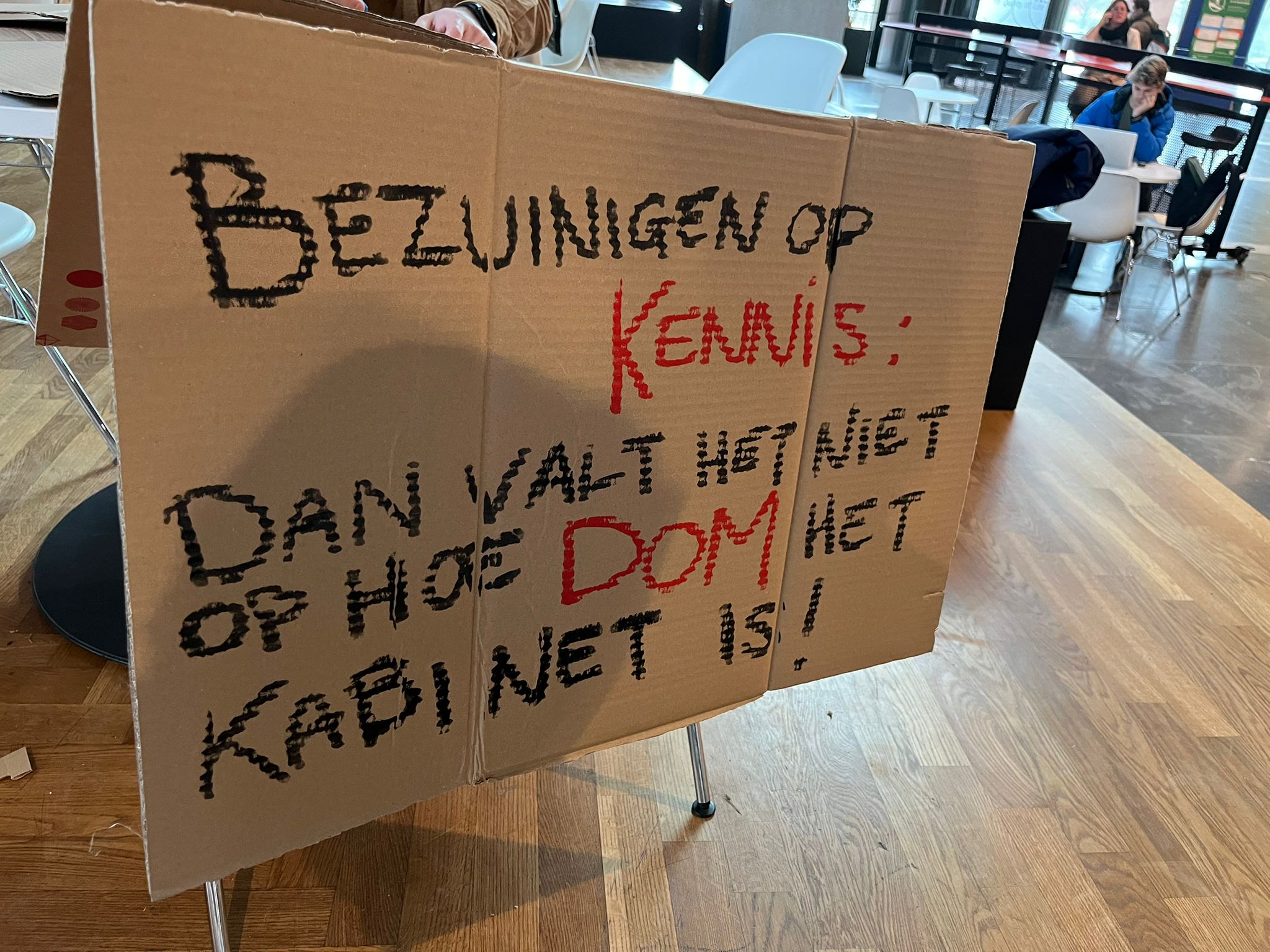World leaders met in Glasgow at the beginning of November for the 26th climate summit. Is this one going to save the world? Resource asked some students.
Sarah Kunze, Master’s student of Communication, Health and Life Science, from Germany
‘Saving the planet might not be the right wording. The planet will continue to exist, the question is in what form. The decisions made at the climate summit in Glasgow can have an influence on this. The climate crisis is already affecting people, especially those who are the least responsible for it. Looking at the rising emissions, we have very little time left to stay below 1.5 degrees of global warming. I feel frustrated about that. It takes courage to address climate inequality in our political decisions. We don’t need hope but courage! Currently, the necessary action is not being taken. If it stays this way, it will just be another conference of empty words and promises.’
Ruben de Vries, Bachelor’s student of Food Technology
‘In my view, the climate conference is definitely useful. It can inspire ordinary citizens and give them new ideas. It is an opportunity for top politicians to get together and make plans. Countries stand face to face and can make agreements on an international scale. I do have my doubts as to whether they will keep those agreements, though.’
Fernando Gabriel, Master’s student of Biosystems Engineering from Mexico
‘It is useful for countries to meet and discuss what they want to do to combat climate change, but it is not essential: we already know what the problem is and what we’ve got to do. It would be more useful to have meetings every six months to discuss what’s been done, instead of a huge event at which questions are discussed that we all know the answers to. That time could be better used to actually take action. At the moment I see COP26 as more of a show than a forum for discussion.’
Tijl van Hattum, Master’s student of Forest and Nature Conservation
‘We needn’t expect much of the agreements made at the conference. Look at the Paris Agreement – hardly anything has been done with it. The climate conference does keep attention on the topic and keep dialogue going, and that’s important too. But in the end, it’s a lot of empty words and all the promises at the international level won’t get us anywhere. Within the EU we are legally bound to the agreement that we will reduce emissions by 55 per cent. That’s of more use to us. Without that legal enforcement they are just empty promises, I’m afraid.’

Daniël Rikkers, Bachelor’s student of Biology
‘Every time there’s a climate conference, everyone sounds very optimistic but I’ve become a bit cynical about that by now. They so often say they are going to do things differently, but then they come out with half-baked agreements again. I don’t get the feeling we’re making progress. The agreements are not radical enough: the things that we really need to do to stay below 1.5 degrees of global warming – if there’s even a chance of that – are not being done. Seeing will be believing.’
Maria Ferentinou, Master’s student of Environmental Sciences from Greece
‘I think the main weaknesses of this conference are the overrepresentation of corporate lobbies and the private nature of the sessions. Moreover, observers are not welcome in the plenary area but attend online or from other rooms, adding to a feeling of being excluded. However, there are still some positive outcomes, like the agreements to halt deforestation and curb methane emissions, as well as the discussions about climate finance. The conference is not perfect and political will is lacking, but it is not useless either.’
Flavia Gardavsky, Master’s student of International Development from Austria
‘Summits such as this largely represent the interests of big corporations. The focus is on what powerful entities want, and not what ordinary people actually need. Additionally, lobbying and representation of large firms leads to a lack of transparency and accountability. Powerful participants in the climate summit need to rethink their own position and acknowledge the roles they play in perpetuating inequality. It is essential to hear the voices of people directly affected by climate change and involve them in decision-making processes. I advocate for direct action and protest to bring about change. Change cannot happen within boundaries stipulated by the very organizations that need changing.’
Zoltán Csengő, Master’s student of Organic Agriculture from Hungary
‘While it is really important that leaders show awareness, and it is great that awareness is formalized in this summit, it is also problematic that some of the biggest polluters in the world did not play equal roles in the discussions. I am concerned about the risk that any climate-friendly actions taken by participating countries could be hampered by the lack of action taken by counties like China and Russia. I also think more real numbers and results should be presented at these summits. Participants should show exactly what gains they have made since the last summit, in order to increase accountability and motivation.’


 Text: Marloes Klaasse, Julia van der Westhuyzen, Yvette Langenberg, Susan van Weperen
and Katerina Mouka Illustration: Shutterstock
Text: Marloes Klaasse, Julia van der Westhuyzen, Yvette Langenberg, Susan van Weperen
and Katerina Mouka Illustration: Shutterstock 

